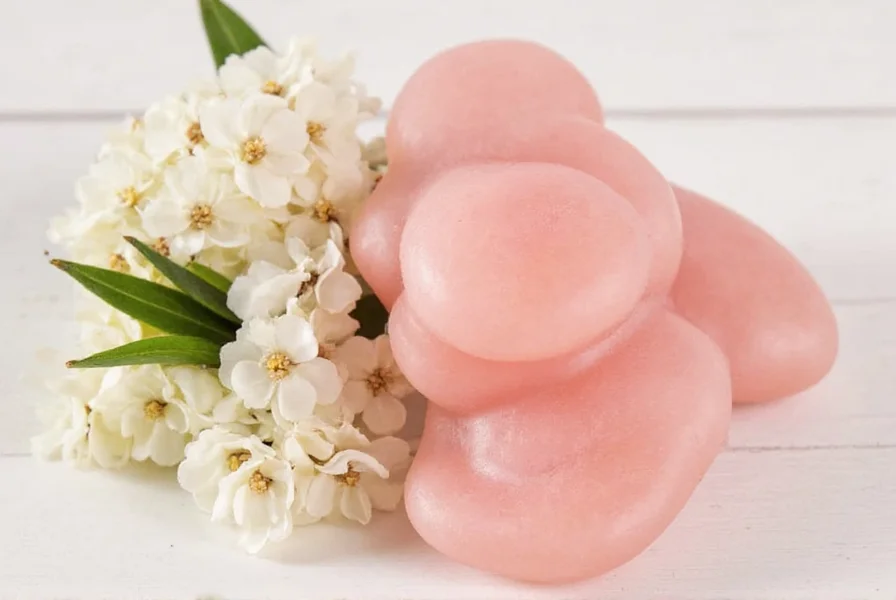When exploring natural remedies for oral health, many people search for "clove gum" seeking solutions for gum pain and dental discomfort. Understanding what this term actually means—and how to use it safely—is essential for anyone considering this traditional remedy.
What Exactly Is Clove Gum?
The term "clove gum" creates frequent confusion. Contrary to what the name might suggest, it doesn't refer to a commercial chewing gum product flavored with cloves. Instead, it describes the traditional use of clove plant material (either whole cloves, clove oil, or clove extract) applied directly to gums for therapeutic purposes.
The Syzygium aromaticum plant, native to Indonesia, produces the dried flower buds we know as cloves. These contain 60-90% eugenol, a bioactive compound responsible for clove's distinctive aroma and its well-documented medicinal properties. When people mention "clove gum," they're typically referring to using this natural substance to address gum inflammation, toothaches, or other oral health issues.

Historical Use in Oral Healthcare
Clove's application in dental care spans centuries across multiple traditional medicine systems. Ancient Chinese practitioners documented its use for tooth pain as early as 266 AD. Ayurvedic medicine incorporated cloves for oral health maintenance, while traditional Indonesian healers utilized them for various dental complaints.
This historical precedent has translated into modern dental practice. Many contemporary dentists acknowledge clove oil's temporary pain-relieving properties, sometimes recommending it as a short-term solution while patients await professional treatment. The American Dental Association recognizes eugenol's role in certain dental materials, though they emphasize it should complement—not replace—professional dental care.
Scientific Evidence Behind Clove for Gum Health
Multiple studies have investigated clove's effectiveness for oral health concerns. A 2018 review published in the Journal of Oral Biology and Craniofacial Research analyzed 27 clinical trials examining natural remedies for dental pain. The review concluded that clove oil demonstrated significant analgesic and antimicrobial effects comparable to benzocaine in short-term toothache management.
Research shows eugenol works through multiple mechanisms:
| Mechanism | Effect | Scientific Support |
|---|---|---|
| Analgesic action | Blocks pain receptors | Multiple clinical studies |
| Antimicrobial properties | Reduces oral bacteria | Lab studies confirm effectiveness against common oral pathogens |
| Anti-inflammatory effect | Reduces gum swelling | Documented in animal and human studies |
| Antioxidant activity | Protects gum tissue | Supported by biochemical analysis |
Practical Applications for Gum Health
When properly used, clove offers several applications for maintaining gum health and addressing discomfort. Understanding the correct methods ensures both safety and effectiveness.
Temporary Toothache Relief
For acute tooth pain, dentists often recommend a temporary solution using clove:
- Dilute 2-3 drops of clove oil in 1 teaspoon of carrier oil (olive or coconut)
- Apply to cotton swab and dab on affected area
- Use no more than 2-3 times daily for maximum 2 days
Gum Inflammation Management
For swollen or irritated gums, a diluted clove mouth rinse can provide relief:
- Mix 1-2 drops clove oil with 1 cup warm water
- Add 1/2 teaspoon baking soda
- Gargle for 30 seconds, then spit out
- Use once daily as needed

Safety Considerations and Proper Usage
While clove offers benefits for gum health, improper use can cause complications. The concentrated nature of clove oil requires careful handling to avoid tissue damage.
Key safety guidelines include:
- Always dilute - Never apply undiluted clove oil directly to gums
- Limited duration - Use for no more than 2-3 days without dental consultation
- Avoid prolonged contact - Don't leave clove preparations on gums for extended periods
- Check for allergies - Perform patch test before first use
People with bleeding disorders should exercise particular caution, as eugenol can interfere with blood clotting. Those wearing dental appliances should consult their dentist before using clove products, as the oil may damage certain materials.
Clove Gum vs. Clove Oil: Understanding the Difference
Many searchers confuse these terms, but understanding the distinction matters for proper application:
- Clove gum - Refers to the practice of using cloves for gum-related issues, not an actual gum product
- Whole cloves - Can be gently chewed to release oils for localized relief
- Clove oil - Concentrated extract requiring dilution before use
- Commercial products - Some dental products contain clove derivatives at safe concentrations
For those seeking natural remedies for gum pain relief, properly prepared clove applications can provide temporary comfort while awaiting professional dental care. However, it's crucial to recognize that clove treatments address symptoms, not underlying dental issues.
When to See a Dentist Instead
While clove applications offer temporary relief, they shouldn't replace professional dental care. Seek immediate dental attention if you experience:
- Pain lasting more than 48 hours despite home treatment
- Signs of infection (pus, fever, swelling)
- Gums that bleed easily or appear receding
- Persistent bad breath despite oral hygiene
- Loose teeth or changes in bite pattern
Remember that natural remedies for gum pain serve as temporary solutions, not cures for underlying dental conditions. Regular dental checkups remain essential for maintaining optimal oral health.
Conclusion
Understanding what "clove gum" actually means—applying clove products for gum health—helps users make informed decisions about this traditional remedy. When used correctly and temporarily, clove's natural properties can provide meaningful relief from gum discomfort and minor dental pain. However, it's essential to recognize both the benefits and limitations of this approach.
For those exploring natural solutions for oral health concerns, properly diluted clove applications represent a time-tested option supported by both historical use and modern research. Always prioritize professional dental care for persistent issues, using natural remedies like clove as complementary approaches rather than replacements for necessary treatment.
Is clove gum actually a type of chewing gum?
No, clove gum isn't a commercial chewing gum product. The term refers to using cloves or clove oil for gum pain relief and dental discomfort. It's a common misconception stemming from the phrase "clove for gum issues" which has been shortened and misinterpreted over time.
How quickly does clove work for tooth pain?
When properly applied, clove oil typically provides noticeable pain relief within 5-10 minutes. The eugenol compound works by numbing nerve endings in the affected area. However, this relief is temporary (lasting 1-2 hours) and should not replace professional dental treatment for persistent toothaches.
Can I use clove oil directly on my gums without diluting it?
No, applying undiluted clove oil directly to gums can cause chemical burns, tissue damage, and increased pain. Always dilute clove oil with a carrier oil (like olive or coconut oil) at a ratio of 1-2 drops of clove oil to 1 teaspoon of carrier oil before application. Even diluted, limit use to 2-3 times daily for no more than 2 days.
Are there scientific studies supporting clove for gum health?
Yes, multiple studies confirm clove's effectiveness for oral health. Research published in the Journal of Oral Biology and Craniofacial Research (2018) found clove oil's pain-relieving properties comparable to benzocaine. Laboratory studies also demonstrate its antimicrobial effects against common oral bacteria like Streptococcus mutans and Porphyromonas gingivalis, which contribute to gum disease.
What's the difference between using whole cloves versus clove oil for gum pain?
Whole cloves provide a milder, more controlled release of eugenol when gently chewed, making them suitable for direct application. Clove oil is highly concentrated and must be diluted before use. Whole cloves offer temporary relief while you prepare a more precise oil mixture. However, clove oil provides faster, more potent pain relief when properly diluted, making it preferable for acute dental pain.











 浙公网安备
33010002000092号
浙公网安备
33010002000092号 浙B2-20120091-4
浙B2-20120091-4